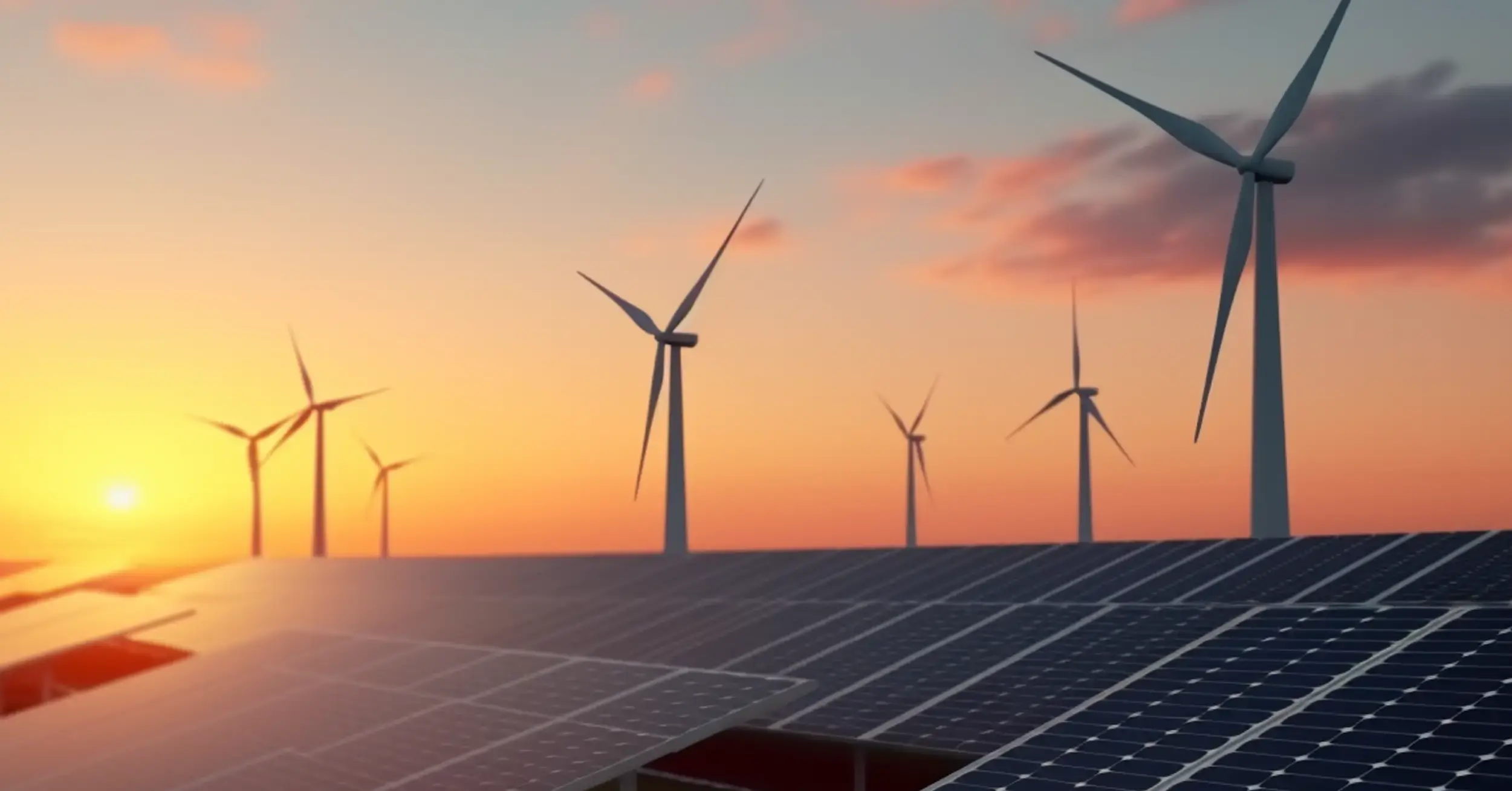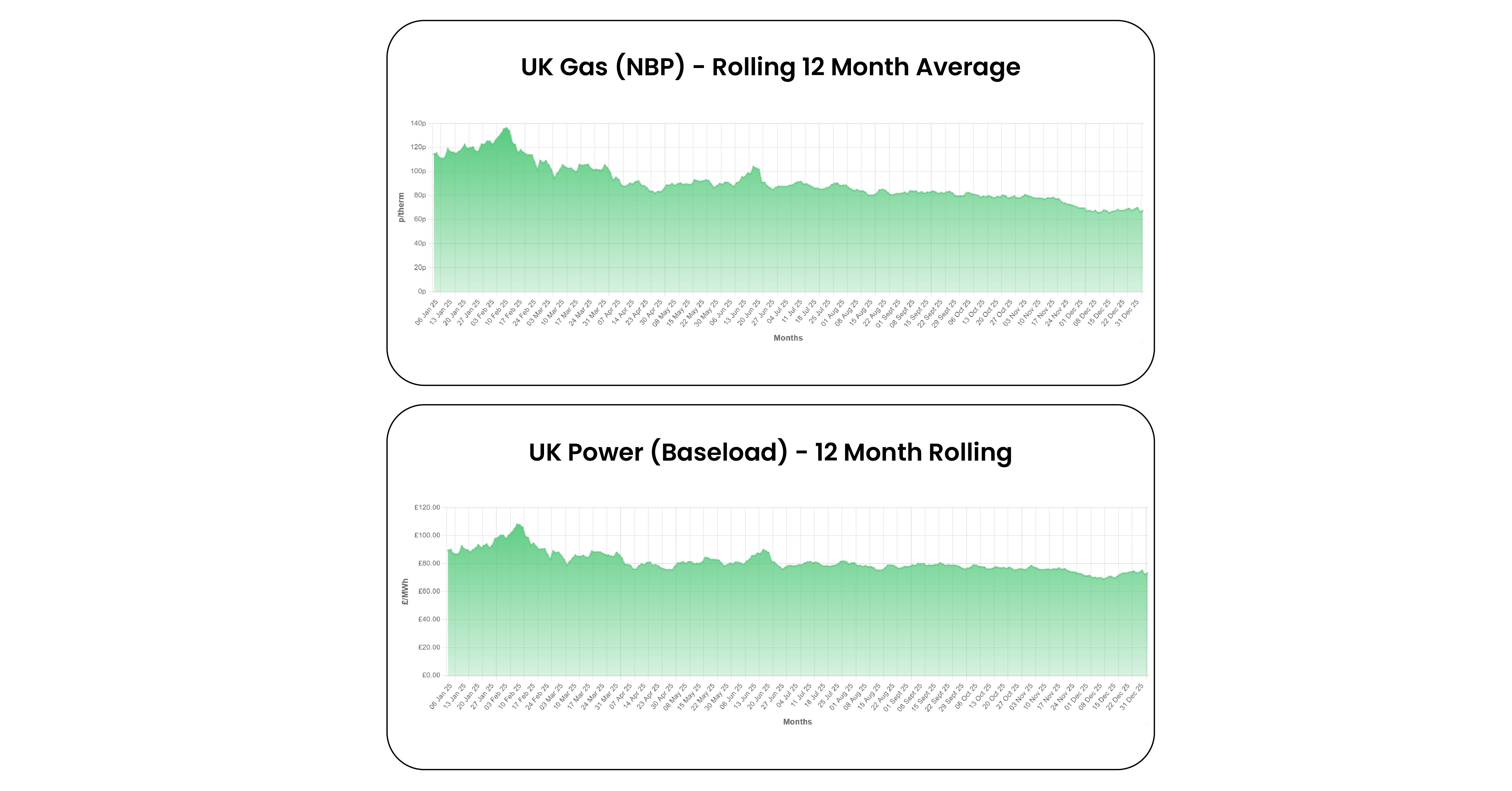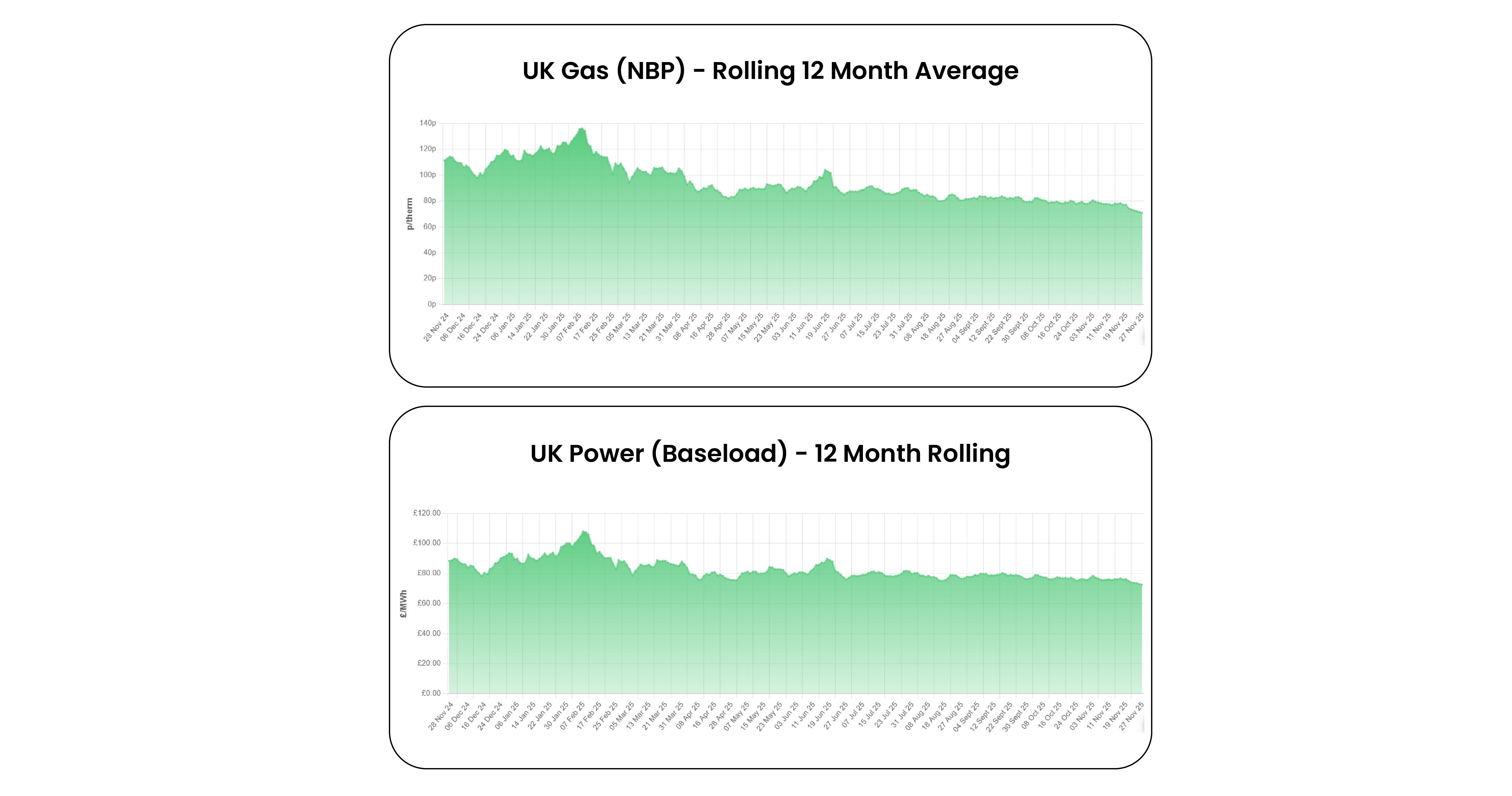UK Energy Market Analysis - December 2025
European power grids have come under significant pressure lately, as weather-driven demand surged across the region. Prices climbed to an 11-month...
3 min read
![]() True Group
:
Sep 19, 2025 11:00:00 AM
True Group
:
Sep 19, 2025 11:00:00 AM

The renewable energy sector is no longer a niche experiment, it’s a global economic force reshaping how we power our lives. The next five years will shape the next 50. Staying on top of these trends isn’t optional, it’s essential.
Global electricity demand is set to surge in the coming decades, driven by the rapid growth of electric vehicles, digital infrastructure and new technologies. At the same time, falling costs and supportive policies mean renewable power will dominate new capacity additions.
As the grid experiences an influx of intermittent renewable energy, from the rapid growth of rooftop solar to the rise of floating offshore wind, both challenges and opportunities emerge. Traditional power systems based on coal, gas and nuclear plants provided a steady, controllable flow of electricity and built-in stability. By contrast, wind and sunlight fluctuate, causing generation levels to rise and fall unpredictably. Without sufficient energy storage or flexible backup systems, this variability can create sudden surges and dips in supply. Over time, these swings can trigger frequency fluctuations, voltage instability, and even an increased risk of blackouts if not carefully managed
Demand Side Response
Demand Side Response (DSR) is a mechanism where electricity consumers adjust their power usage in response to signals from the grid or energy markets. Instead of ramping up power plants to meet spikes in demand, DSR reduces or shifts demand at critical times, helping balance supply and demand more efficiently. Many DSR schemes pay businesses just to be available to reduce demand at certain times, with additional payments made when the grid operator actually calls on you to curtail usage.
Increasingly, artificial intelligence is helping companies identify the best times to participate in DSR and automate their response, making the process simpler and more profitable. Certain industries are better suited for DSR, such as heavy manufacturing, data centres, cold storage and water treatment plants, due to their high and flexible energy usage patterns and the availability of non-critical loads that can be shifted.
DSR may be a new idea for many businesses and there can be confusion when it comes to determining eligibility and the initial steps to take. This is precisely why True has established a network of dependable, leading DSR-partners who can handle this process on your behalf.
DSR presents an excellent opportunity to secure additional capital for your decarbonisation strategy. Our team of experts, coupled with our innovative True platform, can assist you in overseeing the entire process and identifying potential opportunities that might otherwise go unnoticed.
Decentralisation of Power
The traditional one way flow of electricity from centralised power plants to passive consumers is rapidly evolving. Decentralisation is accelerating as businesses and communities begin generating, storing and even trading their own electricity. Emerging distributed energy solutions are transforming traditional consumers into 'prosumers' who can sell excess power back to the grid or directly to each other. This decentralised model not only reduces transmission losses and boosts resilience but also opens up new revenue streams at the local level.
Building on this shift, Vehicle to Grid (V2G) technology takes decentralisation a step further. V2G turns electric vehicles (EV) into mobile energy assets. Instead of simply charging from the grid, V2G enabled cars and fleets can discharge stored energy back into homes, businesses, or the local grid when demand peaks or prices rise. This effectively transforms millions of EV batteries into a vast, distributed storage network, amplifying consumers’ ability to save costs and support the grid at the same time.
Wrapping up on increasing decentralisation technology, the UK has made significant progress in developing a more functional circular economy alongside the rollout. For example, new EV battery recycling facilities, combined with stricter legislation, are maximising the recovery of scarce materials. Companies are also successfully repurposing EV batteries into second-life energy storage systems for less demanding applications. Having a responsible end-of-life strategy is essential to ensure these advancements truly deliver on their sustainability promise.
Corporate Power Purchase Agreements (CPPAs)
Corporate Power Purchase Agreements (CPPAs) are one of the most powerful trends driving the renewable shift. Instead of relying solely on standard utility tariffs, organisations are signing long-term contracts directly with renewable energy developers, securing price certainty while guaranteeing a clean energy supply.
CPPAs serve two purposes: they give renewable projects the predictable revenue streams needed to secure investment and construction and they provide businesses with long-term protection against energy price volatility. This model has evolved rapidly as companies can now choose from on-site PPAs (where generation is built at their facilities), off-site physical PPAs (power delivered through the grid), or virtual PPAs (financial contracts that hedge prices without direct delivery).
In the next five years, expect CPPAs to become even more flexible and accessible. Multi-buyer or aggregated CPPAs are emerging to allow smaller organisations to band together to purchase renewable energy, lowering entry barriers and diversifying risk. Meanwhile, innovative contract structures tied to carbon intensity, storage integration, or time-of-use pricing are making it easier for companies to tailor their renewable procurement to their sustainability goals.

European power grids have come under significant pressure lately, as weather-driven demand surged across the region. Prices climbed to an 11-month...

Despite very high gas demand and strong short-term power prices last week (with UK baseload clearing at £109.23/MWh for Tuesday delivery), prices for...

April has arrived with a mix of complexity and consequence for UK businesses managing energy and utility costs. It’s not just a question of whether...